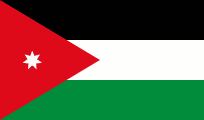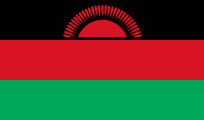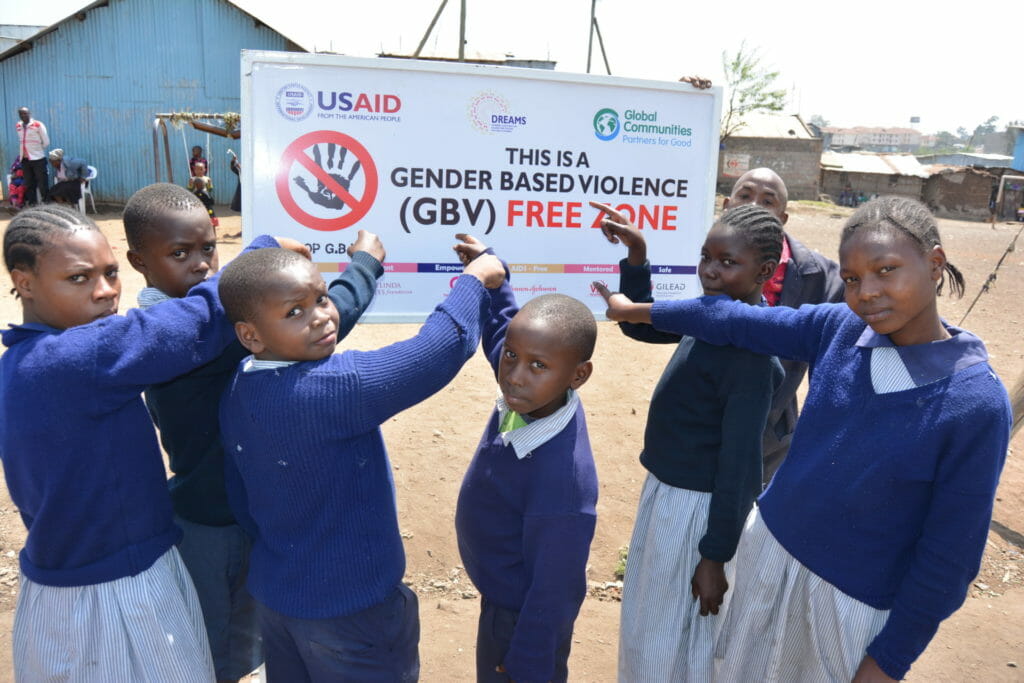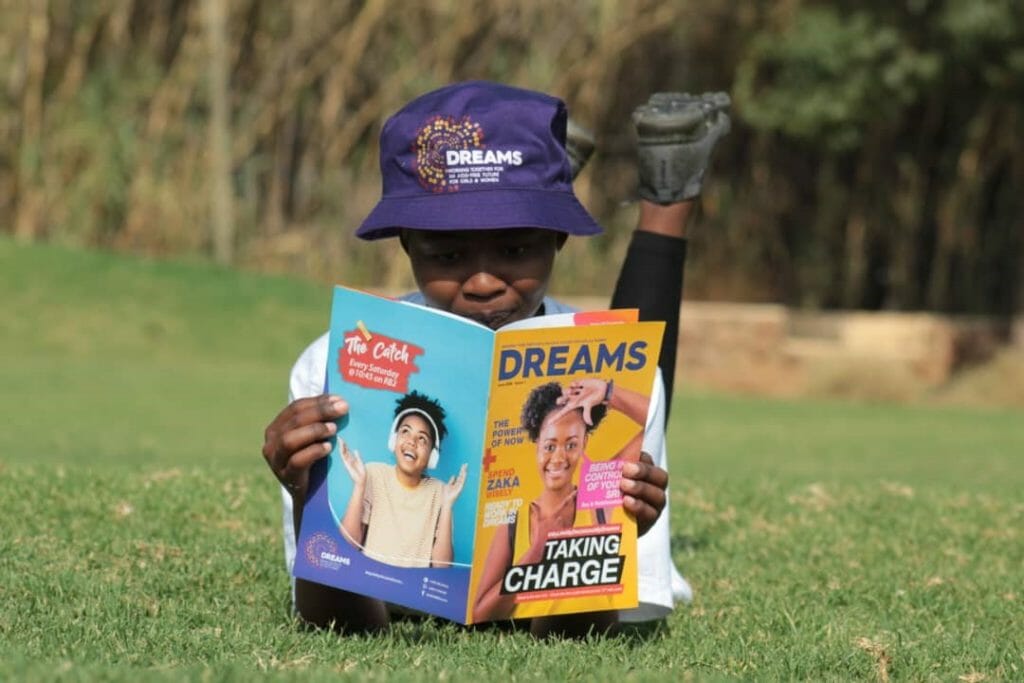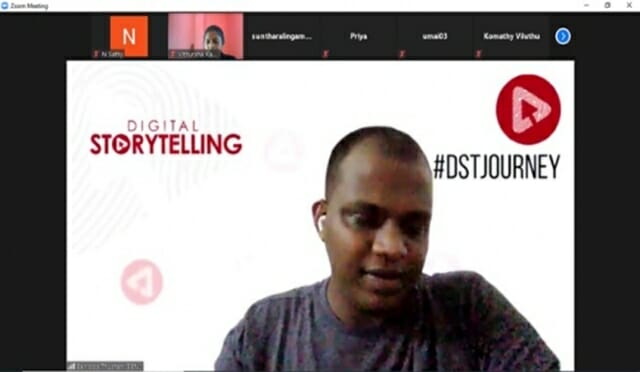Global Communities implements evidence-based interventions to address stress, trauma and violence, and to create pathways for youth to use their voices to positively affect government policies and services. Our programming ensures that youth have a voice, choice and leadership. We have partnered with youth in more than 15 countries on projects that offer opportunities for employment, better health, obtaining an education, reducing conflict and gaining leadership skills.
By implementing youth-focused programs in economic development, health, conflict mitigation, gender-based violence prevention and civic engagement, Global Communities enables youth to reach greater potential and secure a healthier, more sustainable future. Our programs for adolescent girls and young women engage families, educators, and communities to build a safe and supportive environment and provide opportunities for girls to acquire the critical skills and knowledge they need to thrive now and into adulthood.
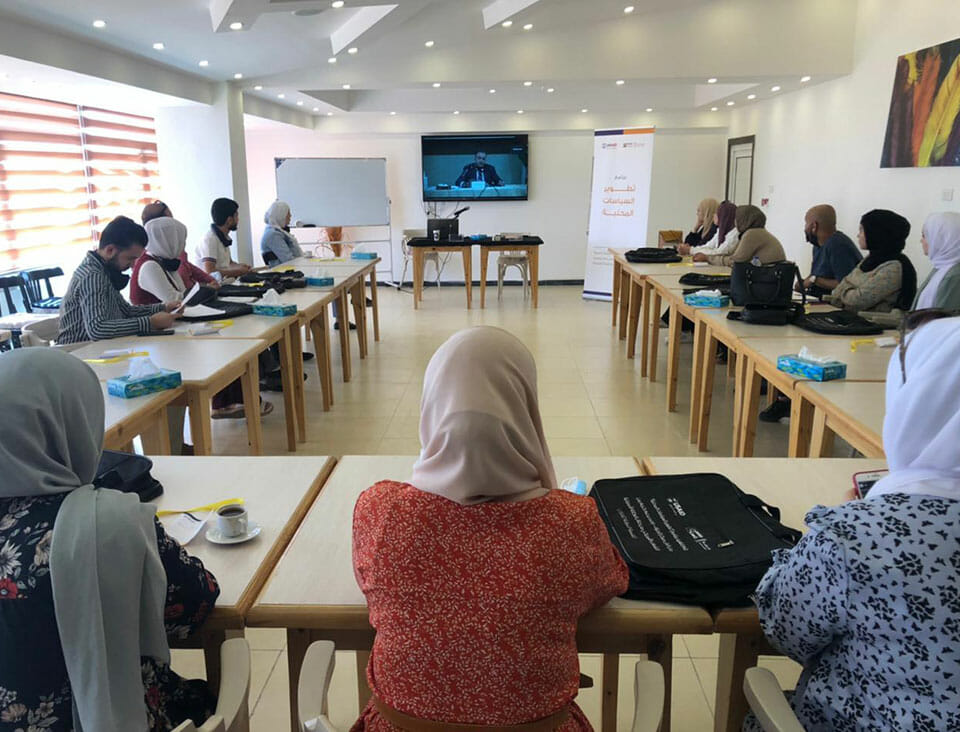
Empowered Youth
Global Communities presents opportunities for youth to play a meaningful role in activity design and implementation, offering them access to authentic leadership roles. Our youth initiatives in Jordan have facilitated ground-breaking dialogue between youth and local communities, where they can participate in programming that explores agency, life skills, critical thinking, gender and social inclusion and leadership so they can contribute to a shared future.
Community Participation
Youth and their families are actively engaged in our program development and implementation so that they are conducive to positive youth development. We are committed to improving the capacities and enabling the aspirations of youth so that they can contribute to and benefit from more stable, democratic and prosperous communities. Brimming with potential and ambition to fully integrate into the local economy but frustrated by the lack of opportunities available to them, youth in Kosovo are playing an integral role in determining the economic and political future of their country through accessible, meaningful training and guidance.
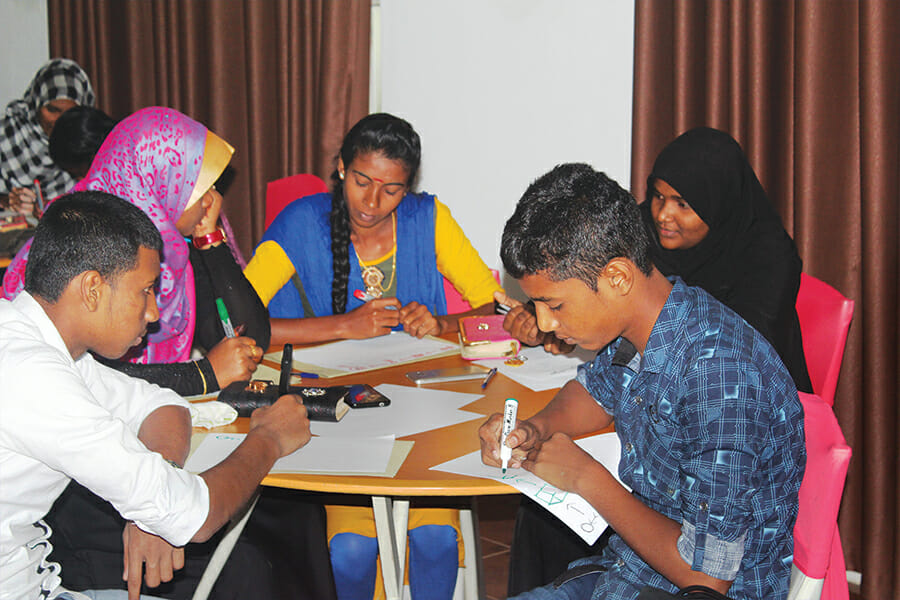
Interactive Trainers & Relevant Curriculum Activities
We develop materials and trainings that are interactive and utilize methods that address the physical, cognitive, social, emotional and creative development of all our program participants, as well as leverage youth’s interests to build real skills for success in school, work and life. In Sri Lanka, for example, there has never been a more urgent need for healthy media consumption and digital and media literacy for youth. Without knowing, young people can unintentionally contribute to misinformation that undermines healthy societies, but Global Communities’ SCORE mentors are helping combat the threat of weaponized information through webinars and trainings.
Safe Spaces
All programming is held in a safe and nurturing environment that supports the developmental, emotional, physical health and mental well-being of all young people. Global Communities implements Project ROOTS, an after-school program that seeks to prevent human trafficking by addressing the root causes of gender-based violence, sexual exploitation and unhealthy relationships, and where school-aged children build resilience in a safe space.
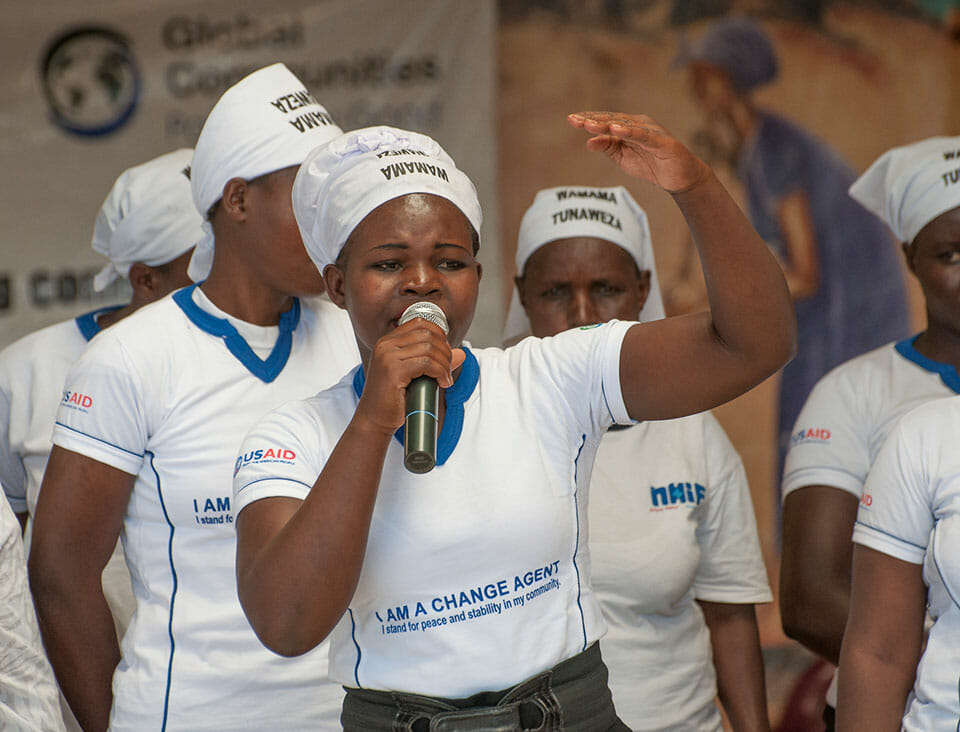
A Focus on Adolescent Girls & Young Women
Global Communities works with girls, their families and communities to secure their rights, expand their life choices and reach their full potential.
Guided by the principles of Positive Youth Development, Global Communities designs programs to combat gender-based discrimination and ensure that adolescent girls and young women:
- Have the necessary skills and assets to be resilient and excel at school, work, and in life
- Are empowered to make decisions about their lives, set their own goals and act without fear of violence, retribution, or exploitation
- Have increased access to safe, quality education, health services and economic opportunities
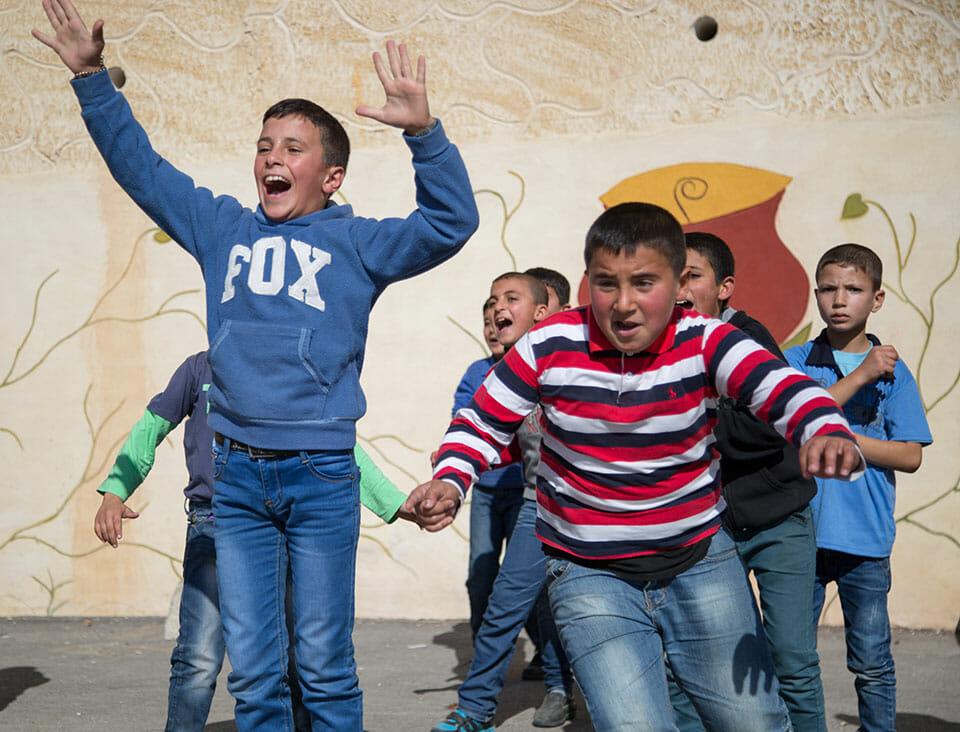
Positive Relationships
We encourage positive connections between youth, community leaders and institutions that foster and support a youth-friendly environment. We have implemented youth programs in more than 15 countries in sectors covering:
- Youth Participation & Leadership
- Youth in Conflict (conflict management mitigation and mental health
- School-Based Interventions
- Transition to the Workforce (soft skills, entrepreneurship and employment)
Ending Child Marriage
Global Communities addresses the causes and consequences of child marriages by challenging parental involvement, unequal gender norms and practices, women and girls’ lack of empowerment and low levels of economic development. Interventions work at the individual, family, community and societal levels to promote lasting change and create a safe and supportive environment for girls. We work through self-help groups to foster women’s leadership to mobilize communities and households against child marriage and support the aspirations of adolescent girls.
PCI India, a Global Communities Partner, has established a model to foster and harness the collective strength of self-help groups in order to mobilize communities against child marriage. Mothers and other adult women facilitate family and community level dialogues to combat the acceptance of child marriage. The self-help group curriculum supports social organizing against the practice, offers safe spaces for adolescents and advocates for policy changes at the government level.
Our Approach
Global Communities incorporates the proven Positive Youth Development methodology into our youth programming, which shifts the emphasis from a focus on problems to working with youth as partners in building a productive environment for them to reach their greatest potential. Our approach favors leadership and skill-building opportunities so that youth can feel competent, useful, powerful and find a sense of belonging.
Our work in this area reaches
Resources
Briefs & Case Studies
Barriers and Solutions to Youth Employment in the Ghanaian Construction Sector
Unemployment among youth in Ghana continues to increase despite more than two decades of strong economic growth trends and a substantial expansion in education and overall human resource development. The World Bank estimates that of the total number of people who are unemployed, 65% are between 15 and 24 years. The most recent Ghana Living…
Briefs & Case Studies
Strengthening the Capacity of Business Associations to Support Youth Employment: A Case Study of the Artisans Association of Ghana
Youth unemployment and joblessness together constitute a major socio-economic and political problem in Ghana. The Ghana Statistical Service 2015 report noted that 13.4 percent of youth are unemployed, while the Ghana Living Standards Survey Round 6 reported that approximately 30 percent of youth in Accra and 24 percent of youth in other urban areas are…
Briefs & Case Studies
Increasing Access to Finance for Youth in Ghana: Lessons Learned from the YIEDIE Project
Disadvantaged, urban youth face a range of challenges in accessing financial services: long distances to reach financial service providers financial products that are inappropriate for seasonal or intermittent work, minimum age requirements to open a bank account or obtain credit, and limited experience with financial services. In addition, financial institutions have traditionally been reluctant to…
Briefs & Case Studies
Supporting Youth Employment through the Apprenticeship Model: Outcomes and Lessons from Ghana
In Ghana, the construction industry is booming, growing at an average eight percent per annum due to a growing economy, infrastructural development, rapid urbanization and a rising middle class. The growth of the sector has resulted in an unmet demand for skilled labor. While youth between the ages of 15 and 24 years make up…
Briefs & Case Studies
Taking a Systems Approach to Youth Employment in the Ghanaian Construction Sector: A Case Study
Ghana’s booming construction sector has been a key driver of the country’s impressive economic growth rate over the past decades, and is a major employer given its labor-intensive nature. While the sector’s growth is a source of new jobs, it faces a significant skills gap with the shortfall of artisans estimated to be in the…
Briefs & Case Studies
Can Policy Engagement Create Youth Employment Opportunities? Lessons Learned from the YIEDIE Project
According to the World Bank, Ghana’s youth population increased from 1.1 million in 1960 to 4.6 million in 2010. A major concern of successive governments in recent years has been to create adequate, decent and sustainable jobs for the growing youth population. Relative improvements in the country’s GDP, which has averaged six percent growth within…







